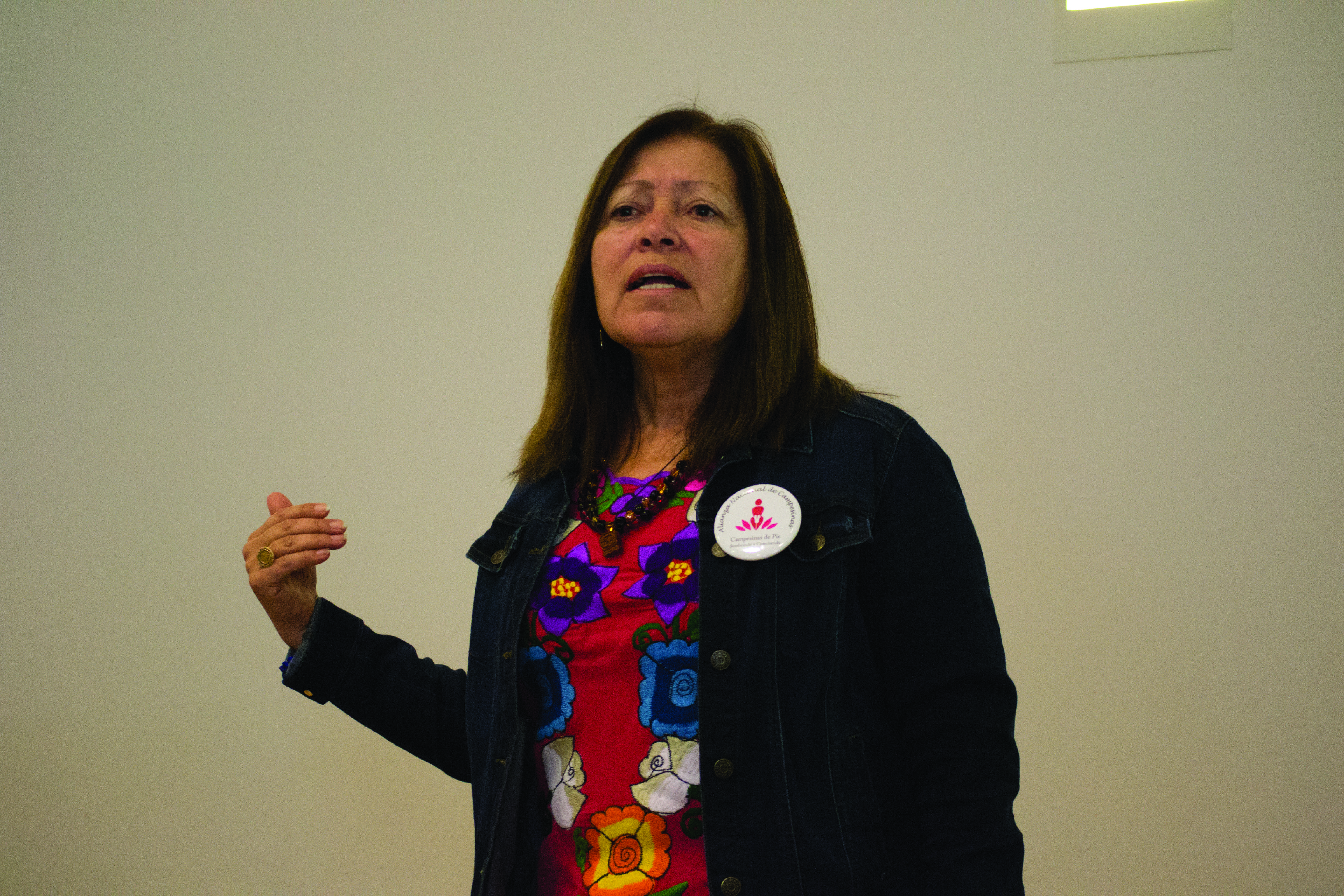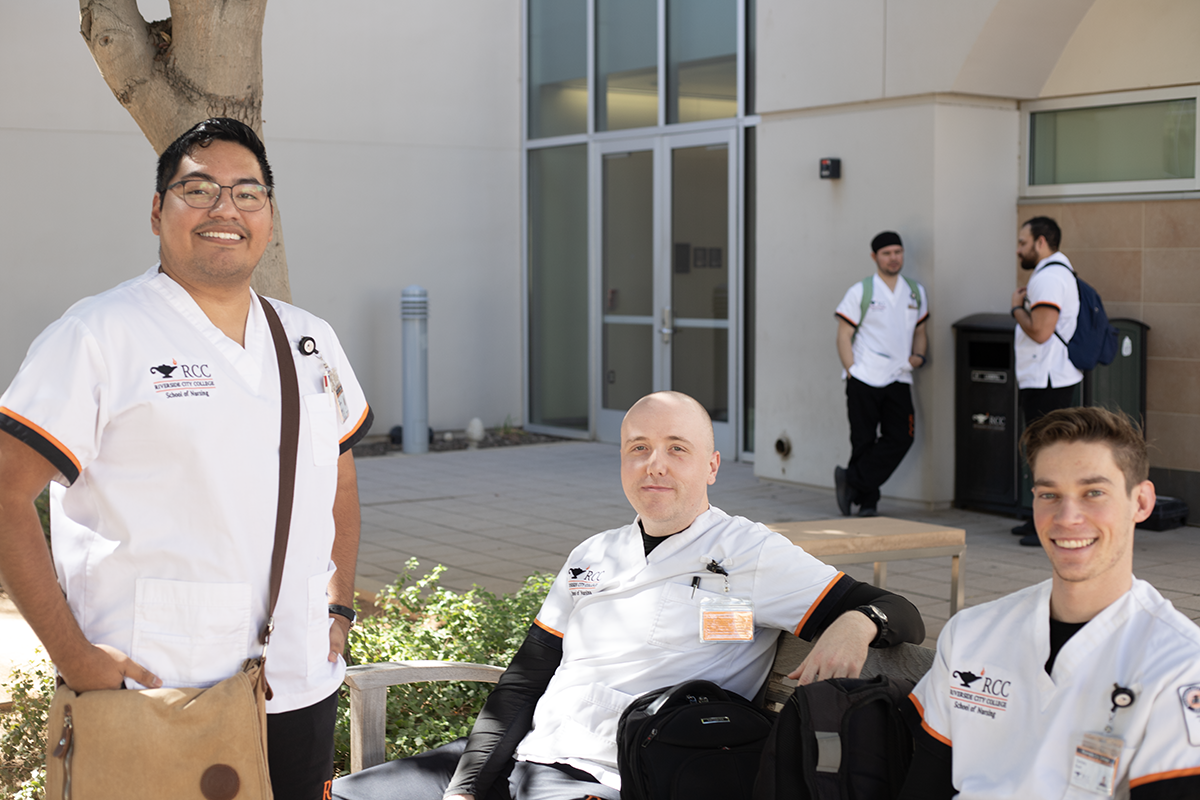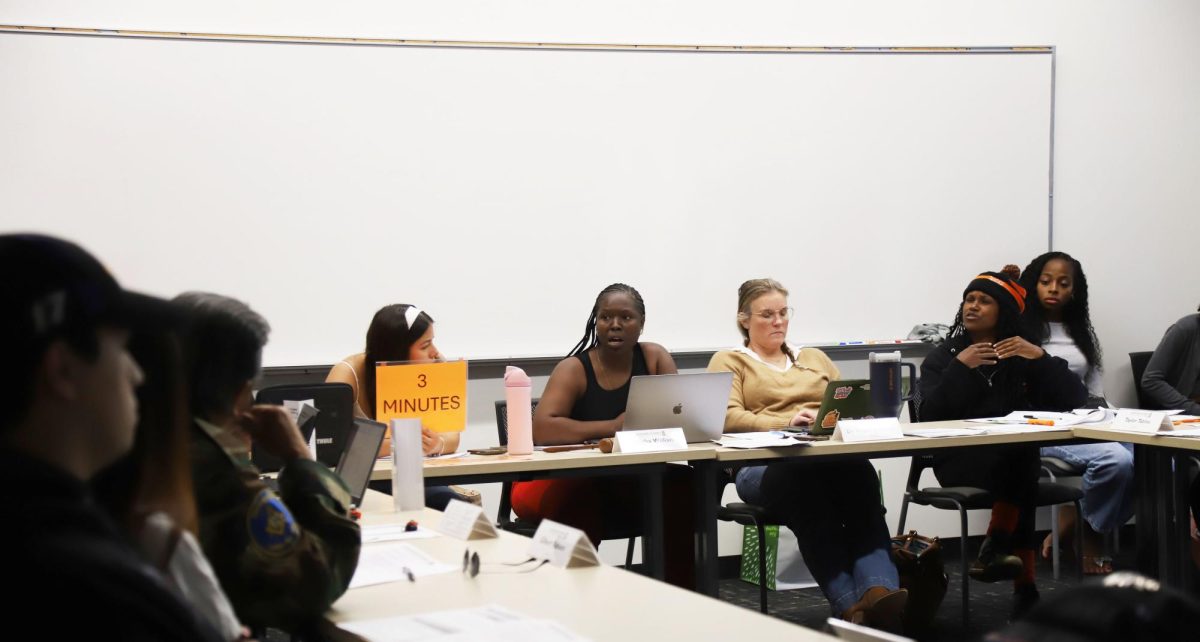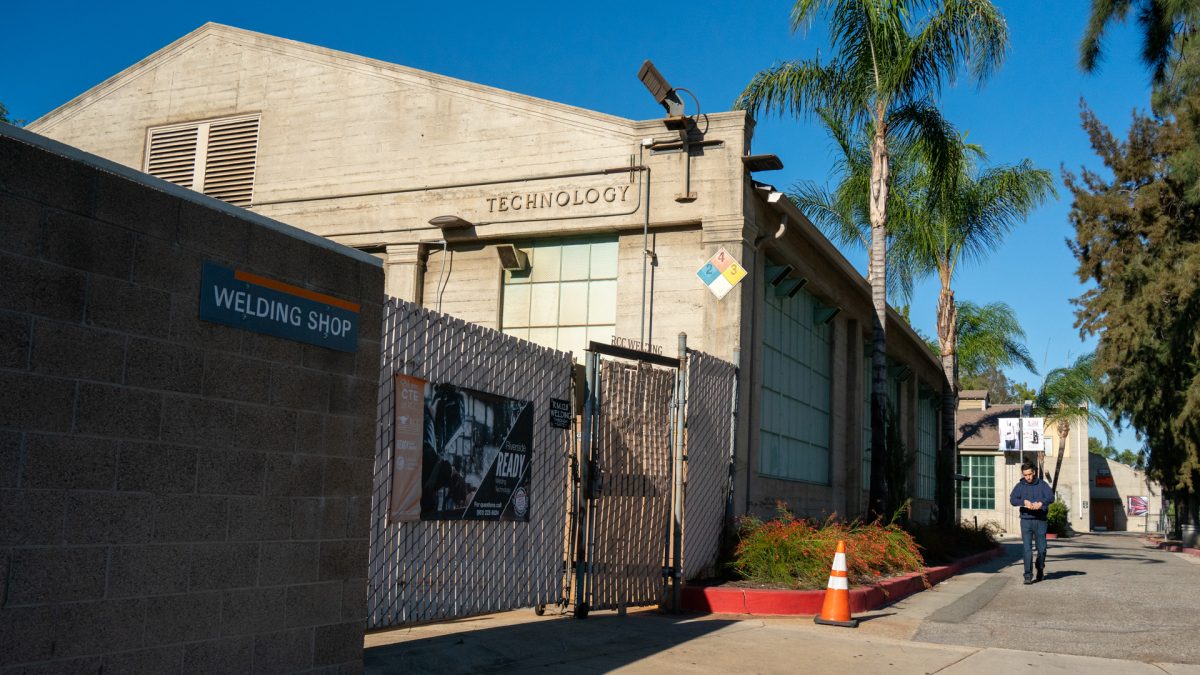
By Erik Galicia
“When I was a teenager I was being sexually harassed,” said Hermila “Mily” Treviño- Sauceda, executive director and co-founder of the Alianza Nacional de Campesinas. “At the beginning, you don’t know what’s going on. You think, ‘Why is he touching me?’”
Treviño-Sauceda spoke at The Power of Campesinas Seminar on April 16 at UC Riverside. She discussed the injustices that female farmers face on a regular basis and how organizations like the Alianza Nacional de Campesinas combat sexual harassment, deplorable living conditions and often hazardous working conditions at labor camps.
According to Treviño- Sauceda, 90% of female farm workers interviewed during a 1980s California study said that sexual harassment was a major workplace problem. She said that many of these women refrain from coming forward because they are not aware of their legal rights and because of the fear of being humiliated or fired.
“You feel alone,” Treviño- Sauceda said. “ I was an organizer, I was good at talking to people but that issue that was pervasive to me, I could not talk about. Then I started blaming myself.”
Founded in 2011, the Alianza Nacional de Campesinas is an alliance of several independent organizations that fight for the rights of migrant farm workers across the U.S. and represent over 700,000 women. They aim to improve the lives of women in the fields by organizing labor and developing leadership at the grassroots level.
Treviño-Sauceda said that many of these women grow accustomed to their situation, but the alliance works to empower these women by encouraging them to raise their voices and take action.
“When I was young I thought everyone in our community lived in the same environment and this is just how it was,” Treviño-Sauceda said. “Once I started organizing I wondered why they wouldn’t complain about the work conditions. They were afraid of getting fired and many were undocumented and would be threatened with immigration.”
“We stand in solidarity with farm worker women so that they will no longer suffer in silence,” Treviño-Sauceda said.
She gave examples of the experiences farm workers deal with. Besides the sexual assault of women in the labor camps, there were accounts of exploitation and physical suffering in the fields.
“Imagine watching a pregnant woman working in pesticide-sprayed fields,” Treviño-Sauceda said. “Then she’s taken to the ER to give birth. The baby is born, but the mother dies.”
Treviño-Sauceda said it is not uncommon for farm workers to lose their pregnancies. She recounted her own experience working in fields that had been sprayed and how the company did nothing about it.
“We’d get sick for a week,” Treviño-Sauceda said. “Some of us would be throwing up but we had to go to work because you’d get fired if you missed one day. My own mother ended up losing a baby.”
Some of the organizations in the Alianza work on pushing legislation like the Farm Bill but Treviño-Sauceda said that they are also working to correct the injustices still allowed in many states by the Fair Labor Standards Act of 1938, a law that mandates fair pay for workers in all industries except agriculture.
“Some farm workers have to pay to get a job,” Treviño-Sauceda said. “That’s illegal, but they don’t know that.”
According to Treviño-Sauceda current farm workers have to work over 10 hours a day or 60 hours a week for overtime pay in California, but the Alianza is pushing for a federal mandate on overtime pay for them.
The activist said fostering farm worker women’s leadership at the grassroots level has shown success in achieving justice for migrant women that have been abused in the fields.
“We have created a farm worker women’s movement and became agents of change,” Treviño-Sauceda said. “We organize press conferences and bring the media to our communities … when needed to talk about our issues.”
Some members of the Alianza on the East Coast organize locally to provide food to families that are victims of hurricanes. Treviño-Sauceda said this outreach extends help to undocumented families who are usually the last to receive aid, if any at all.
“It was very powerful how she spoke about sexual harassment in a culture where it’s so taboo to speak about it,” said Aylin Salcido, a UC Riverside spanish literature student in attendance. “I got very angry because I’ve been in those instances where you can’t talk about certain things.”
Another UC Riverside spanish literature student, Petra Rodriguez, attended the seminar because she grew up in the Coachella Valley and has family that works on the farms.
“It was great to learn about the empowerment of women in the fields since society tends to see them more as cheap labor than as actual people,” Rodriguez said.
The Alianza is always looking for interns and Treviño-Sauceda encouraged students to contact the organization for information on how they can get involved.
“If it weren’t for the other women I’ve worked with, none of what we’ve done would’ve happened,” Treviño-Sauceda said. “These women, without all the opportunities we have, are very smart, very talented. Women that earn no more than $13,000 a year are organizing and putting their resources together.”
“A lot of our community still feels that men are the head of the household,” Treviño-Sauceda said. “That’s fine. We need to respect that. But women are the center of the family. Women organize the family.”












